Community Development
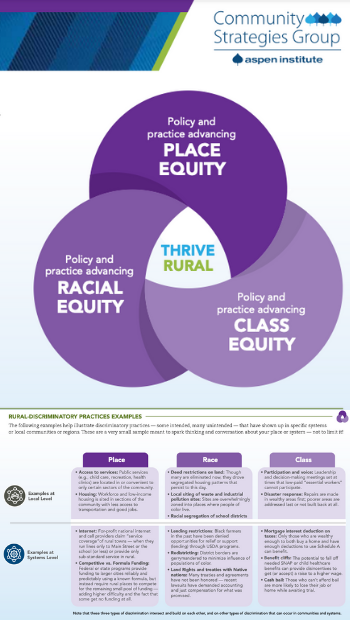
Thrive Rural Framework: Foundational Element
The Foundational Element of the Thrive Rural Framework requires identifying and dismantling historical and ongoing discriminatory practices that disadvantage rural people and places.
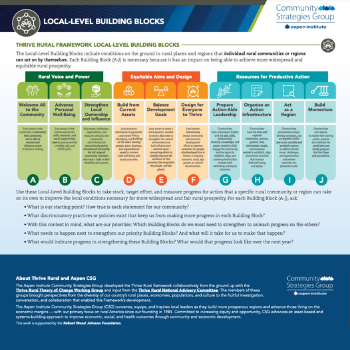
Thrive Rural Framework: Local-Level Building Blocks
Local-Level Building Blocks highlight conditions in rural places and regions that individual can act on by themselves.
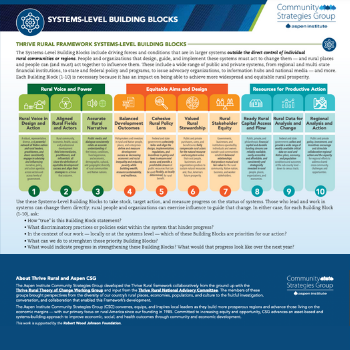
Thrive Rural Framework: Systems-Level Building Blocks
The Thrive Rural Framework is a new tool to help you take stock, target action, and gauge progress on rural prosperity. We...
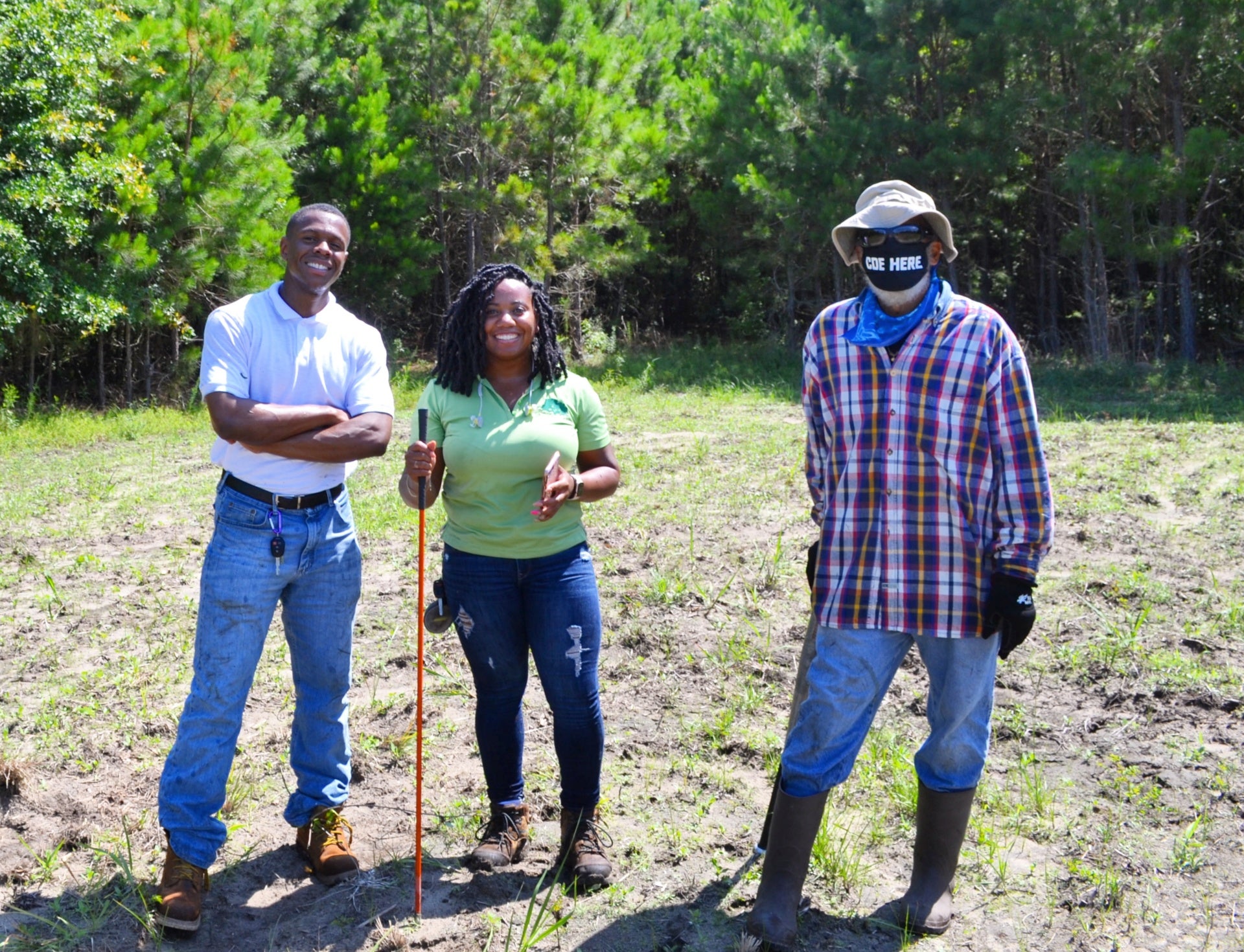
An Event: A Few Things to Know About Rural America
Nov. 18th, 2020, 1PM
The YouTube link above is a playlist – it has nine videos that cover all the different sessions of this...

Place-Based Shareholder Engagement
Last week, the Business Roundtable, a powerhouse collective voice for business interests, released a new statement redefining corporate “purpose.” In it, they...
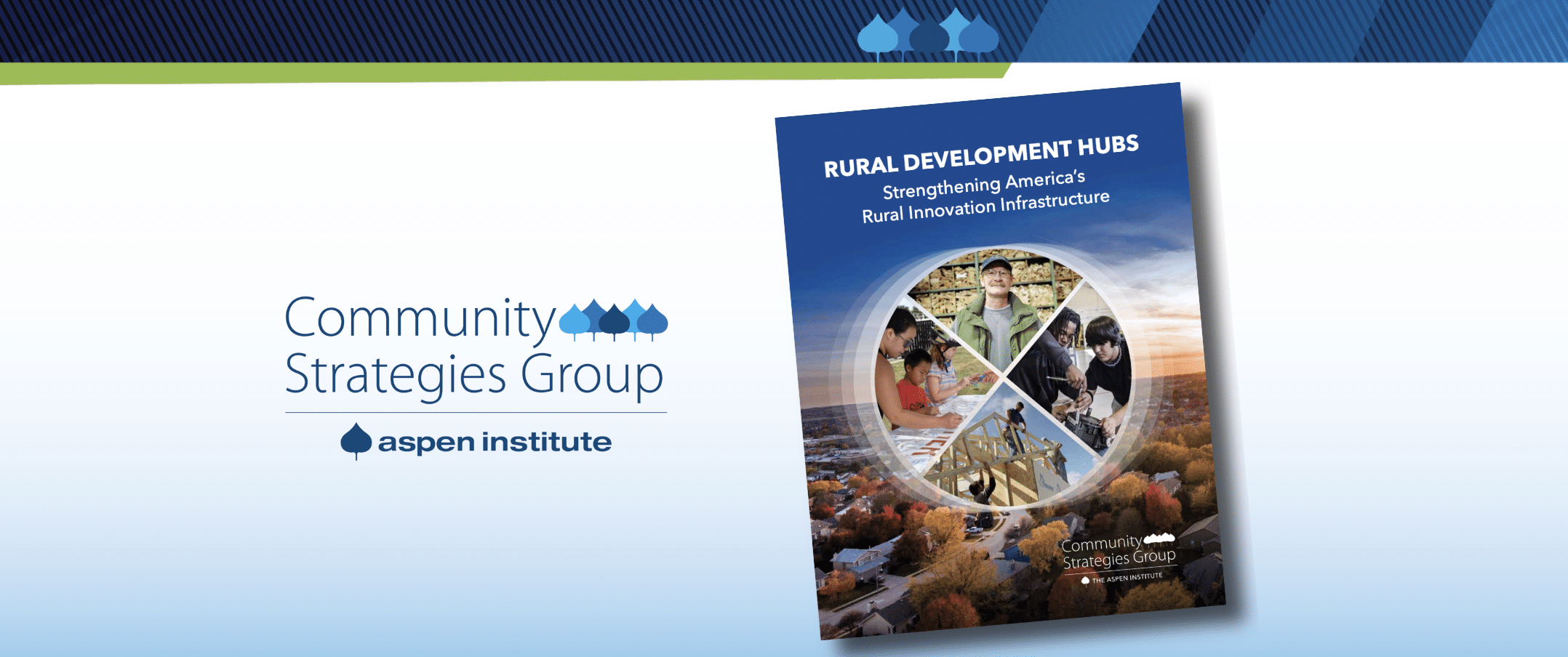
Rural Development Hubs Executive Summary
In this brief we preview initial topline findings from the Aspen Institute Community Strategies Group’s interviews with more than 40...

Growing Local Philanthropy: The Role and Reach of Community Foundations
This report, "Growing Local Philanthropy: The Role and Reach of Community Foundations," presents the findings of a 2004 survey conducted by the Aspen Institute Community Strategies Group on geographic component funds (GCFs) within U.S. community foundations.

Gilpin County Regional Planning Commission Resident Recreation and Parks Survey
This report, presents the findings of a resident recreation and parks survey conducted in February 1993 for Black Hawk, Central City, and Gilpin County, Colorado. The study was a cooperative effort between the Regional Planning Commission, the University of Colorado at Boulder, and The Aspen Institute.

Leadership Through Partnerships: The National Trust’s Main Street Program as a Community Economic Development Tool
This article, "Leadership Through Partnerships: The National Trust's Main Street Program as a Community Economic Development Tool" by John C. Shepard (1992), examines the Main Street Program of the National Trust for Historic Preservation. The program uses a "grassroots and bootstraps" approach, combining historic preservation with economic development to revitalize historic commercial districts.

Pioneers of Progress: Policy Entrepreneurs and Community Development, Volume I
This report, "Pioneers of Progress: Policy Entrepreneurs and Community Development, Volume One," examines the role of non-governmental organizations in shaping state economic development policy in the U.S., particularly in the early 1990s.

Pioneers of Progress: Policy Entrepreneurs and Community Development, Volume II: The Network of Pioneer organizations
This document, "Pioneers of Progress: Policy Entrepreneurs and Community Development, Volume Two: The Network of Pioneer Organizations," published by Jobs for the Future in April 1991, profiles various non-profit and community-based organizations across the United States.

Pioneers of Progress: Community Development, Volume 1
Report on Economic Development in Rural America, particularly in relation to entrepreneurship.
